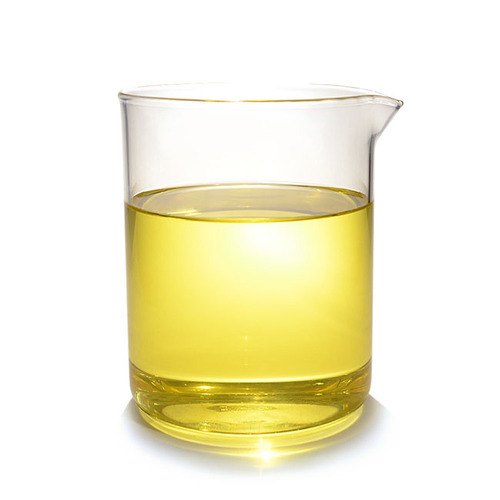Cocamidopropyl Betaine For Skin - Benefits & How To Use
A synthetic surfactant called Cocamidopropyl Betaine is frequently included in personal care items like shampoos, body washes, and cleansers. This product, made from coconut oil, is renowned for producing a thick lather while efficiently cleansing oil and debris from the face and hair.

Cocamidopropyl Betaine is a well-liked ingredient in many cosmetic formulas since it is considered moderate, delicate, and acceptable for various skin types.
Benefits of Cocamidopropyl Betaine For Skin
Cocamidopropyl Betaine offers several benefits for the skin. This is one of the most commonly found ingredients for skincare products for many reputed brands and product lines. Some of its benefits include:
- Gentle cleansing: It is a mild surfactant that effectively cleanses the skin without stripping it of its natural oils.
- Moisturizing: It can help to moisturize the skin by reducing transepidermal water loss, which helps to keep the skin hydrated and supple.
- Anti-irritant: It has been shown to have anti-irritant properties, making it beneficial for sensitive skin types.

- Conditioning: It can help to condition the skin, leaving it feeling soft and smooth.
- PH Balanced: It helps maintain the skin's pH balance, which is essential for healthy skin function.
- Compatibility: It is compatible with other skincare ingredients, which makes it an excellent addition to many cosmetic formulations.
Cocamidopropyl Betaine is a versatile and beneficial ingredient in many personal care and skincare products. Derived from virgin coconut oil, it is a mild surfactant that effectively cleanses the skin without stripping it of its natural oils. It also has moisturizing properties that help to hydrate and condition the skin, making it suitable for all skin types.
In addition, Cocamidopropyl Betaine has anti-irritant properties, making it beneficial for sensitive skin. It is also pH balanced, which helps to maintain the skin's natural pH balance. Moreover, it is compatible with other skincare ingredients, which makes it a popular addition to many cosmetic formulations. Overall, Cocamidopropyl Betaine is a versatile ingredient with numerous benefits for the skin, making it a popular choice in many skincare products.
How To Use Cocamidopropyl Betaine For Skin?
Cocamidopropyl Betaine is commonly used in personal care and skincare products such as shampoos, body washes, and cleansers. When using a Cocamidopropyl Betaine product, apply it to the skin or hair, lather, and then rinse thoroughly with water. It is generally considered safe and well-tolerated by most individuals.

However, those with sensitive skin may wish to patch-test a product containing Cocamidopropyl Betaine before using it on a larger area. It is important to note that while Cocamidopropyl Betaine is a gentle and effective ingredient, it is always recommended to follow the instructions on the product label and to avoid getting it into the eyes.
Common Uses of Cocamidopropyl Betaine in Skincare
The coconut oil-derived surfactant called Cocamidopropyl Betaine (CAPB) is commonly used in skincare products such as cleansers, body washes, gels, and baby products because of its mild nature. Here are its common uses:

1.Facial Cleansers
Cocamidopropyl Betaine (CAPB) is a mild surfactant in face cleansers, used to create a thick lather and soften dirt and germs, making the cleaning process easier.
2. Body Washes & Shower Gels
As a surfactant, Cocamidopropyl Betaine (CAPB) is often found in body washes and shower gels to help make a rich lather and clean the skin.
3. Shampoos
Cocamidopropyl betaine (CAPB), a surfactant derived from coconut oil, is commonly used in shampoos as a foam enhancer, emulsifier, and irritant reducer.
4. Baby Products
CAPB is an amphoteric surfactant used in personal care products, including those for babies, providing cleaning, texture-enhancing, and conditioning properties in shampoos, body washes, and bubble baths.
5. Hand Washes & Liquid Soaps
A common surfactant found in hand soaps and liquid washes, Cocamidopropyl Betaine (CAPB) is what makes suds and cleans the skin.
Cocamidopropyl Betaine vs. Coco Betaine
Cocamidopropyl Betaine and Coco Betaine are commonly used surfactants in personal care products. Both ingredients are derived from coconut oil and are known for their mild and gentle cleansing abilities. Cocamidopropyl Betaine is a synthetic surfactant, while Coco Betaine is a natural surfactant.
Both ingredients offer similar benefits for the skin and hair, including conditioning and anti-irritant properties, and are suitable for a wide range of skin types. However, Cocamidopropyl Betaine tends to create a denser and creamier lather than Coco Betaine, while Coco Betaine is considered a more natural and eco-friendly ingredient.

In terms of safety, both ingredients are generally well-tolerated by most individuals. Still, those with sensitive skin may wish to patch-test products containing either ingredient before using them on a larger area. It's important to note that both ingredients are commonly used in personal care products and have undergone extensive testing to ensure their safety.
While there are some differences between Cocamidopropyl Betaine and Coco Betaine, they are both effective and gentle surfactants that offer numerous benefits for the skin and hair. The choice between the two may depend on personal preference, the desired foaming ability, and the desire for a more natural ingredient.
Side Effects of Cocamidopropyl Betaine for Skin
Cocamidopropyl betaine (CAPB) is generally safe but may cause skin irritation or allergic reactions, such as redness, itching, or a rash, in some individuals. Here are some of its side effects:

1. Skin Discomfort
Cocamidopropyl betaine (CAPB) is generally considered safe, but it may cause skin discomfort or irritation in some individuals due to production impurities or personal sensitivities.
2. Allergic Reactions
Personal care products often contain the non-allergenic ingredient Cocamidopropyl betaine (CAPB). However, impurities like amidoamine and 3-dimethylaminopropylamine that are present during production can cause allergic reactions.
3. Eye Irritation
Indeed, cocamidopropyl betaine (CAPB) has the potential to cause eye irritation in certain individuals, especially in those who are sensitive to impurities that may arise during the manufacturing process.
Conclusion
To sum up, Cocamidopropyl Betaine is a useful component frequently found in skincare and personal care products. It is a mild surfactant made from coconut oil that effectively washes the skin without removing any natural oils.
It is suitable for sensitive skin because it is hydrating and anti-irritant. Cocamidopropyl Betaine is a well-liked component of many cosmetic formulas since it is pH balanced and compatible with other skincare compounds. Overall, it is a mild, useful, and adaptable substance with numerous positive effects on the skin.
Frequently Asked Questions
Cocamidopropyl betaine is a commonly used ingredient in skincare and personal care products. It is a surfactant derived from coconut oil and is known for its gentle cleansing and foaming properties. Here's an introduction to some frequently asked questions (FAQs) about cocamidopropyl betaine for skin:

Q1. Is Cocamidopropyl Betaine safe for use in personal care products?
Ans: Yes, Cocamidopropyl Betaine is generally considered safe by most individuals when used in personal care products. However, for those with sensitive skin it is better to do a patch test.
Q2. Is Cocamidopropyl Betaine a natural ingredient?
Ans: Cocamidopropyl Betaine is derived from coconut oil but is considered a synthetic ingredient. However, it is a mild and effective surfactant that is commonly used in personal care products.
Q3. Can Cocamidopropyl Betaine be used in hair care products?
Ans: Yes, Cocamidopropyl Betaine is commonly used in hair care products such as shampoos and conditioners. It effectively cleanses the hair without stripping it of its natural oils.
Q4. Is Cocamidopropyl Betaine compatible with other skincare ingredients?
Ans: Yes, Cocamidopropyl Betaine is pH balanced and compatible with other skincare ingredients, making it a popular addition to many cosmetic formulations.
Q5. Is Cocamidopropyl Betaine environmentally friendly?
Ans: Cocamidopropyl Betaine is not considered an environmentally friendly ingredient as it is derived from coconut oil but requires a significant amount of processing to create.
You May Also Like:
Buy Products
-
 Buchu Essential Oil
Buchu Essential Oil -
 Cade Essential Oil
Cade Essential Oil -
 Calendula Essential Oil
Calendula Essential Oil -
 Camphor Essential Oil
Camphor Essential Oil -
 Cocamidopropyl Betaine (CAPB)
Cocamidopropyl Betaine (CAPB)
Related Articles
-
 DIY Hair Pomade - Easy Homemade Recipe With & Without Beeswax
DIY Hair Pomade - Easy Homemade Recipe With & Without Beeswax -
 DIY Glycerin Moisturizer – 3 Natural Homemade Recipes For Face
DIY Glycerin Moisturizer – 3 Natural Homemade Recipes For Face -
 DIY Cleansing Oil - Best Homemade Recipe For All Skin Types
DIY Cleansing Oil - Best Homemade Recipe For All Skin Types -
 How to Make Marble Candles | DIY Marble Pillar Candle
How to Make Marble Candles | DIY Marble Pillar Candle -
 DIY Tanning Oil - Best Homemade Recipes For Tan Removal
DIY Tanning Oil - Best Homemade Recipes For Tan Removal -
 Homemade Mustache Wax: Best DIY Recipe With Natural Ingredients
Homemade Mustache Wax: Best DIY Recipe With Natural Ingredients
Disclaimer :- This article is intended for informational and educational purposes only and should not be considered a substitute for professional medical advice. For specific health concerns or treatment, please consult your personal physician. The article's editor, writer, and VedaOils organization do not assume any responsibility for any health outcomes resulting from the information provided. Readers are strongly encouraged to seek advice from their physician before acting on any recommendations made in these articles.

















 Sign in
Sign in Register now
Register now My Reward Points
My Reward Points









